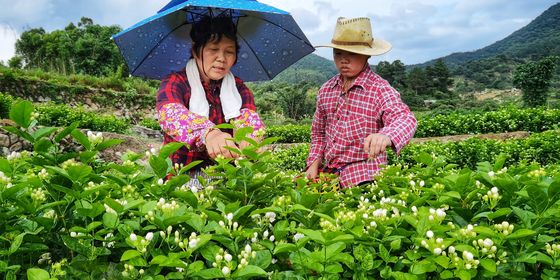Why are northeasterners so unwilling to return home?
“Dongbei Diaspora” is part of our cover story, Home Bound, which explores Chinese society’s ever-evolving views of home and homecoming in an urbanizing age
Hunan’s countryside (see our cover story: Home Bound) isn’t nearly the hardest hit by depopulation trends. That dubious honor goes to the three northeastern provinces known collectively as Dongbei: Heilongjiang, Jilin, and Liaoning, which lost an estimated 1 million residents between the 2000 and 2010, and another 240,000 in the five years that followed.
Sparsely settled to begin with, none of the three provinces actually crack the top five that contribute most to China’s migrant population (Hunan ranks third). Instead, the depletion of Dongbei is significant for its apparent permanence: The northeastern provinces (along with cities Beijing, Tianjin, and Shanghai) were the only places to post negative population growth in 2017.
Originally the homeland of the Manchu rulers of the Qing (1616 – 1911), this frigid frontier was opened to Han mass-settlement in the early 20th century. In the “planned economy” era, Dongbei was known as the “firstborn son of the PRC,” leading the nation’s economy with its coal, steel, and petroleum industries. However, the contraction of these state-owned enterprises in the subsequent reform years led to massive layoffs across the region.
The riches-to-rags narrative continues today, with the region bypassed by new policies, like the Belt and Road Initiative, which focuses western and southern China. An inhospitable climate and a seedy reputation—for corrupt bureaucrats, bloated state-owned enterprises, and gangsters—do their part to discourage outside investment and settlement in the northeast. As of 2015, the state sector contributed to over 30 percent of Liaoning’s economy, 40 percent of Jilin’s, and 50 percent of Heilongjiang’s; private companies, internet startups, and culture industries lag behind.
Even Dongbei natives lack confidence in their home region; 28-year-old Liaoning native (and TWOC editor) Sun Jiahui recalls turning down the only job she ever found close to home—at Liaoning’s best-regarded publishing house, a state-owned firm which offered its new editors a paltry salary of 2,000 RMB, less than half the national monthly average at the time. “I knew from looking at your CV that you wouldn’t accept,” the interviewer told her, sadly. “But this is the reality here.”
“Afterwards, a family friend, who has been working in the publishing industry in Liaoning for many years, told me, ‘If you want to achieve anything in your career, don’t come back,’” Jiahui says. “Leaving my hometown was never a choice. If I could go back to Dongbei and live a life with family around, I would, and I tried.”
The Dongbei diaspora is a culturally influential one, producing many folk, pop, comedy, and, lately, live streaming celebrities. Northeasterners’ strong regional identity and love-hate relationship with their homeland are also well-known. As Fang Wenshan, the renowned lyricist from Taiwan, wrote in his song “Mudanjiang,” named after the snowy city in Heilongjiang: “The place you can’t go to is a distant land; the place you can’t return to is called a hometown.”
Dongbei Diaspora is a story from our issue, “Home Bound.” To read the entire issue, become a subscriber and receive the full magazine.













